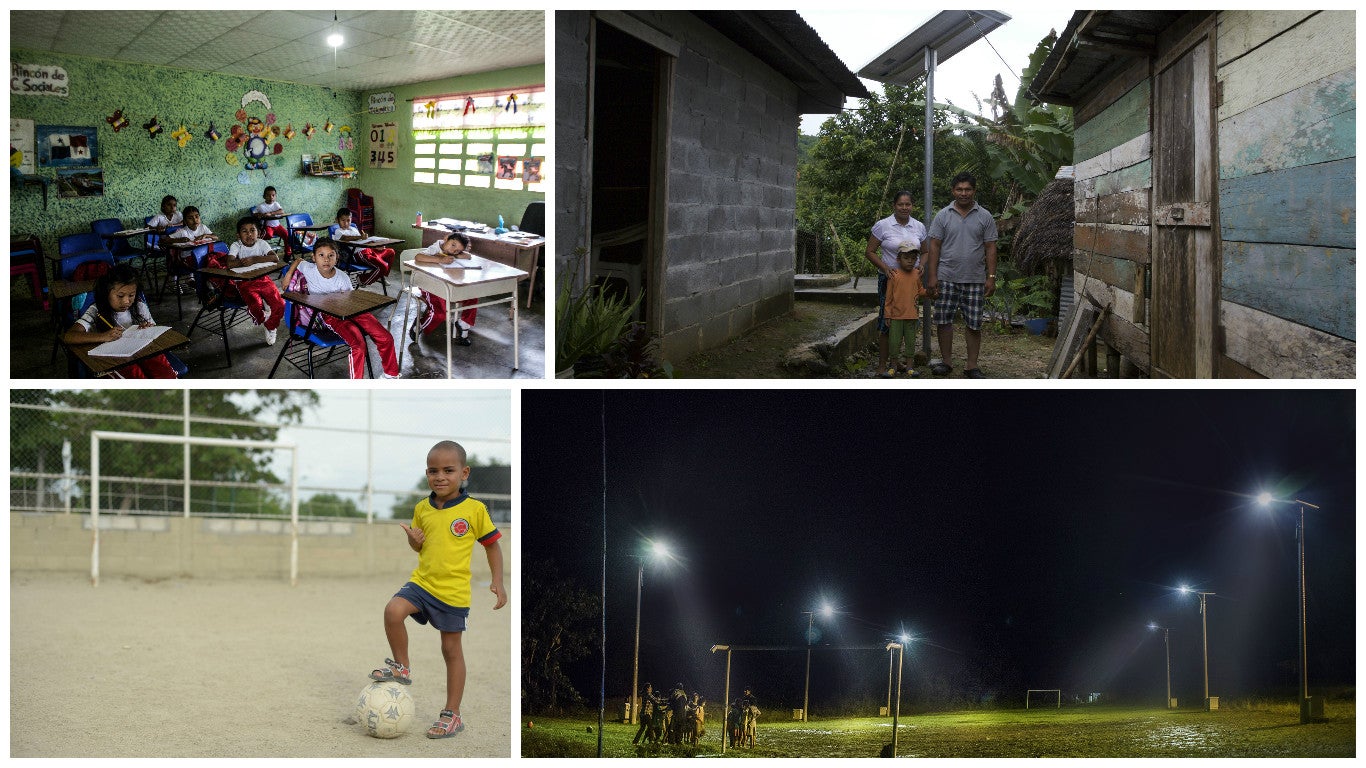
One night in April 2016, girls and boys from the indigenous community of Santa Rosa de Huacaria, Peru played soccer for the first time as their parents cheered from the sidelines. They had spent their whole lives in a small community that had no public lighting, which limited their participation in sports and other social activities at night. The “Light up Your Life” initiative, which installed energy efficient LED lighting and solar lighting in Santa Rosa de Huacaria, will do so in 20 other communities in Peru, Mexico, Colombia, and Brazil. This initiative addresses issues of energy access, renewable energy, and energy efficiency, which, when increased, provide citizens with greater energy security and development opportunities.
For many of us, electricity is such an integral part of our lives that we don’t think about its impact. However, something as simple as the installation of public lighting in a small community can have a long-term impact on the lives of its inhabitants, including promoting greater economic opportunity, improved safety and health and greater levels of gender equality.
Latin America and the Caribbean have reached 96% electricity access, but the importance of reaching the last 25 million citizens is clear. The Inter-American Development Bank (IDB) estimates that achieving 100% coverage by 2030 would cost USD 700 million annually for the next 14 years. The IDB is working to promote the goals of the United Nations Sustainable Energy for All (SE4All) initiative in the region: to ensure universal access to energy, to double the annual rate of improvement in energy intensity, and to double the share of renewable energies by 2030. In order to address important issues related to how to achieve these goals in the region, the IDB recently organized the 1st Sustainable Energy Week in Latin America and the Caribbean from September 6-9, 2016 in Panama City, together with the Ministry of Energy of Panama and its SE4All Latin American and Caribbean partners: the Latin American Energy Organization (OLADE), the United Nations Development Program (UNDP) and the Economic Commission for Latin America and the Caribbean (ECLAC).
Latin America and the Caribbean do have the potential to reach the SE4All goals because of the significant levels of unexploited renewable energy in the region. Exploiting this potential requires public and private investment, which is what SE4All, both globally and in Latin America and the Caribbean, is working to catalyze. Sustainable Energy Week in Panama provided government officials, NGOs and other energy stakeholders with the information and tools to plan for success.
This event helped the region prepare to face the numerous barriers and risks to deploying a commercial scale non-conventional renewable energy. Investments in renewable energy technologies in each country face risks similar to those affecting other infrastructure investments. These risks are associated with the investment environment in a particular country and sector: they may be political (including political instability, legal uncertainty, risk transfer royalties and dividends, breaking contracts) and macro (e.g. exchange risks and price instability).
The IDB is helping break down these barriers by providing support to countries in both stages of pre-investment and investment. We are assisting our countries in planning universal access, supporting the design and implementation of energy efficiency programs, and promoting investments in renewable energy and integration. Since January 2012, in alignment with Sustainable Energy for All, the IDB Group has provided more than USD $4 billion in loans and technical assistance to Latin American and Caribbean member countries.
As we learned from the community of Santa Rosa de Huacaria, Peru, energy can change lives. “The lighting provides us with security which is an important point for us to help develop the participation of girls,” explained Betsy Rodriguez, a young Peruvian woman who serves as a cultural representative of the organization Bigote de Gato and who was a beneficiary of “Light up Your Life.” The real lesson here is that we cannot afford to wait – we must take action now to provide access to modern energy to all.


Leave a Reply